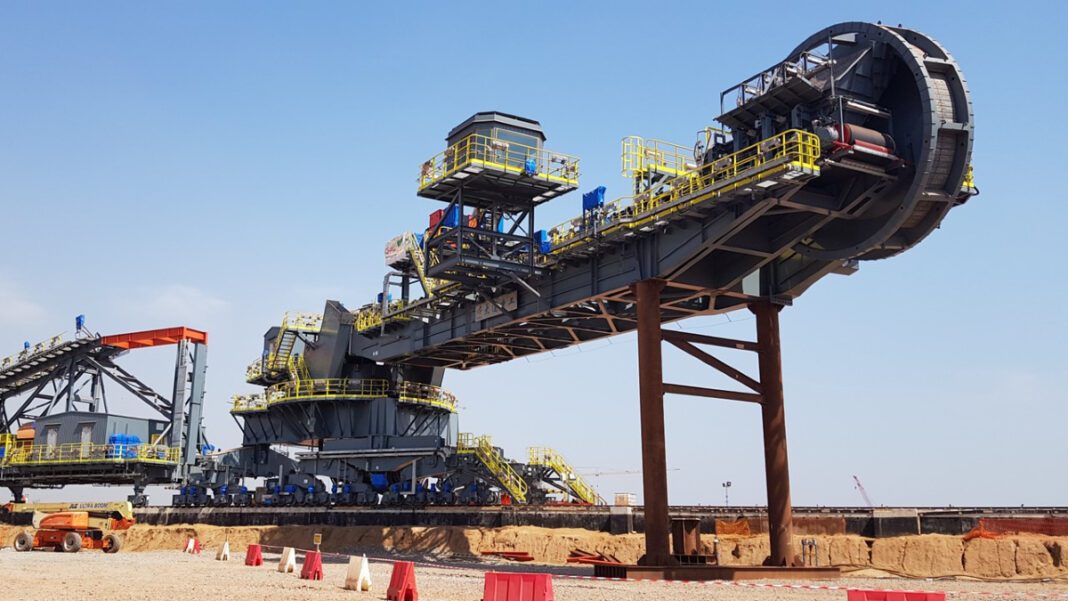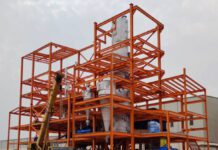Projects in countries like Guinea, present unique challenges, where resources and facilities are limited. One notable project was for the Guinea Aluminium Corporation (GAC), monitored by Fluor Corporation, involving material handling facilities for bauxite ore export. Afcons’ scope included earthworks, structural steel fabrication and erection of about 7,000 MT, and installing systems like a wagon tippler, stacker reclaimer, and barge loader, as well as pre-engineered and pre-fabricated buildings and conveyor systems.
The project faced several challenges. Guinea lacked quality structural steel manufacturing or importing facilities, and the available steel from Guinea and nearby countries was unsuitable for industrial construction. There were also fabrication constraints due to the absence of large-scale fabrication units and high taxes on imported raw materials. Additionally, there was a notable shortage of skilled manpower for high-quality fabrication and erection works.
To overcome these challenges, several solutions were implemented. Materials were procured, fabricated, and transported from Dubai, ensuring logistical feasibility and cost-effectiveness. Fabrication activities were meticulously planned to align perfectly with civil constructions, minimising modifications. Advanced TEKLA modelling was used for detailed drawings to ensure coordination with civil structures and avoid misalignment. Structures were divided into modules suitable for sea transport, with pre-assembly and inspection ensuring dimensional accuracy. Skilled workers from India were mobilised, and local nationals were trained, ensuring a 20:80 ratio of experts to locals. Essential equipment was brought in from India and Europe due to local unavailability.
These strategies enabled the successful fabrication, transport, and installation of the required structures, including 6 km of conveyor systems, demonstrating the importance of meticulous planning and logistical coordination in international projects.
“The Guinea Aluminium Corporation project presented unique challenges due to limited resources and facilities. Overcoming these hurdles required meticulous planning, logistical coordination, and a skilled workforce. By strategically sourcing materials, implementing advanced modelling techniques, and mobilising a team of international experts and local trainees, we successfully completed the project. This experience underscores the importance of adaptability and resourcefulness in international infrastructure projects.”
– Ravichandran Perumal, Afcons Infrastructure Ltd





